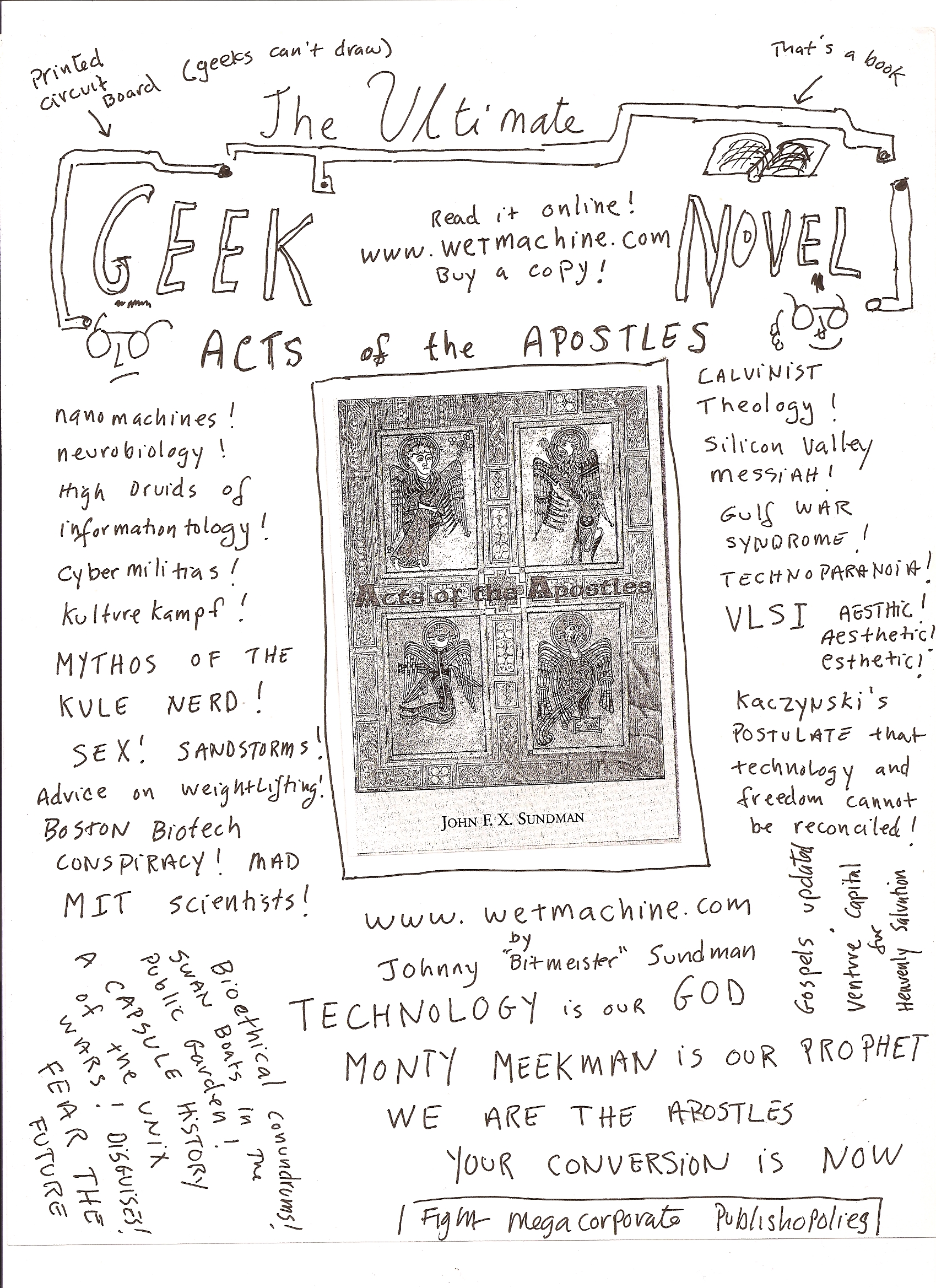For any of y’all sufficiently ungeekoid so as to not understand why this machine is only the coolest thing in the history of fuckall, first, Welcome to Wetmachine, and how the frack did you end up here? And second, please see this very helpful wikipedia article, which will get you up to speed.
As a special, special, bonus, right about the 4-minute mark into this video the narrator/machine-maker uses a locution (is there a name for it? pls ans) in which the words “to be” are omitted from the object-verb of the verb “to need”, and the naked past participle is used instead, viz, Each loop of the Turing program reads the current cell and uses the transition rules to determine if that cell needs changed. N.B. “needs changed”, not “needs *to be* changed”. About this idiomatic usage, Wiktionary says:
Rarely, with a past participle, as in “Something needs done”, which is synonymous with “Something needs to be done.” Note that many speakers do not find this construction to be acceptable.
Please note that *this* speaker, me, finds this construction perfectly acceptable. My Dear Wife, a native of Evansville, Indiana, uses it, and finds herself unable to change that habit after 30 years of effort to speak more “correctly” since I first pointed it out to her. I just think it’s charming when she speaks Southern-Indiana-style and will be heartbroken if she ever drops this usage.
But I doubt she will. After all, according to this source referenced by Wikipedia,
“ (If you’re a need/want+Ved speaker — ”The garden needs watered“ — you can go for decades without realizing that lots of other people don’t use this construction, ever.)”.
But I’ll bet Alan Turing would have noticed. That guy didn’t miss much. (I nearly said “That guy didn’t miss a trick”, but that would have opened a whole nother can ‘o worms.)






